(scroll down for Spanish version / versión española abajo)
In the past couple of years, some of the most engaging and unique sounding music being released has come from a previously unknown source – Uruguay. Whilst the ‘Uruguayan Sound’ varies from producer to producer, scene stars such as Z@P and Omar have grabbed the undivided attention of the underground music world with their penchant for post-apocalyptic melodies, gristly basslines and fresh takes on techno, acid and breaks. However, Uruguay has been a hotbed for musical talent for longer than you might think.
Fresh off a European tour in which he visited Closer, Club der Visionaere and played three UK dates, we speak to DJ Koolt. Co-founder of the now-famous Phonotheque club, incredible DJ and Godfather of the Uruguayan underground.
Hi Edu, thank you so much for talking to Trommel. How are you doing?
Hi! Thanks for the opportunity. I’m super happy, I’ve just finished up my European tour and everything has been awesome. From the parties, to the people and to the venues!
You did a European tour back in 2018, how are you finding it this time around? Is there anything you’ve noticed about European crowds?
This is the third of my European tours and it’s been the longest and definitely the most exhausting one! But I’ve noticed that this time around, the response from the crowds has been so much better. I guess it’s because people around here know me a little better now and have found out what our scene and our sound are about.
A lot of my Uruguayan friends have been playing here and there lately, either on tour or because they’ve decided to move to Europe, and I think that’s really affecting the vibe on the dance floor. Whereas before, I think people might have left our gigs feeling a little surprised, now they come to hear us play knowing what we can offer and that, in turn, makes a lot of difference. I think there are more people into our sound and the gigs are getting a little better for all of us.
Have you been doing much digging whilst you’ve been visiting Europe?
Of course! I’ve been buying and digging up lots of records. Every time I come I make a point of acquiring as much as I can. My first stop is always Madrid and that’s where I started searching. Then, I try and make some time in every city I visit to go to record stores and find out who’s selling privately so I can visit them in their home or wherever it is I have to go.
It’s always been like this for me, I rifle through absolutely everything. The treasure is always where you least expect it! On this particular trip, the place I found the most records was Barcelona, as opposed to Berlin like on previous tours. Add to that all the gifts, promos and dubplates, and I’m going home with a few extra bags.

Let’s start at the beginning of your career. Where did your interest in electronic music first begin? I’ve heard Bruno Gervais mentioned a lot…
I first discovered electronic music as a child, many years before I started to play. Simply put, my family’s inclinations led me to come into contact with alternative sounds, very different from what people listened to in Uruguay in the 1970s or 80s. I was born in 1973 and started playing in 1999. I was 26 and I had already spent a lot of time going to parties.
I met Bruno in the early 90s and, I believe a great part of what I do has been directly influenced by listening and dancing to his musical magic, but I have to say that Uruguay has a lot of nightlife culture and clubbing traditions since before Bruno came onto the scene.
Uruguayans are great at partying and going out—I think it’s a defining feature of ours, part of our peoples’ idiosyncrasy. Uruguayan DJs have always been really up-to-date and connected to whatever was happening in Europe or the USA. We’ve never been really isolated from the great artistic and cultural shifts on a global scale, even before the internet.
So you were aware of global musical trends, say the minimal scene in Frankfurt in the early 2000s?
I always tried to stay on top of whatever was happening in the world musically. Firstly out of curiosity, because I wanted to know what it was that I was dancing to weekend in, weekend out.
I would listen to the radio stations that played electronic music all day long, and I’d go check out records at a lot of the stores in Montevideo, before the arrival of CDs and the vinyl crisis. Then I started DJing and the search became even more rigorous. Before discovering Juno and shopping on there, I’d go to Buenos Aires, where there were still five specialised record stores, and I’d spend entire days shopping for records.
Otherwise, I’d buy from a friend who used to import from the big US distributors like Watts Music and others like it. I would also buy from older DJs in Montevideo who didn’t want their underground house and techno records anymore because they were moving on to CDs.
I always tried to be aware of the trends, especially because in those days we didn’t have the local producers we have today. Something that is totally different these days is that, if I wanted, I could make a set of 100% Uruguayan music, with records that have been mastered and pressed in Europe or dubplates made here or in Montevideo.
How has the internet changed your digging? I know the Phonotheque DJs are known for having to buy vinyl in bulk to match shipping costs…
Importing records has always been easier for Uruguayans than it has been for anyone else in South America. There’s a law that protects the importing of records and books, so we pay very little taxes on them. That’s really helped local DJs keep their taste for buying vinyl, even when other formats like CD or USBs have come into fashion everywhere else in the world. Lots of us just kept buying vinyl as much as possible, either on trips or online.
Did you feel a responsibility to mentor younger Uruguayan DJs, even if they would leave for Europe later on as some have?
I’ve watched generation after generation come up, evolve and decide to leave the country. But there’s always groups of new talent who are enthusiastic about doing things right and reaping what the older generations have sown. We always aim to keep the vinyl DJ culture alive and that’s what’s still happening. So these days, with this massive revival of records, things haven’t really changed for our scene!
There are now two specialized record stores in Uruguay, “Lado B” in Maldonado, run by my dear friend Jorge Delgado, and “Alma” in Montevideo, set up by another close friend, Fede Lijtmaer. Both are new and both offer a really serious selection of music via new and second-hand records.
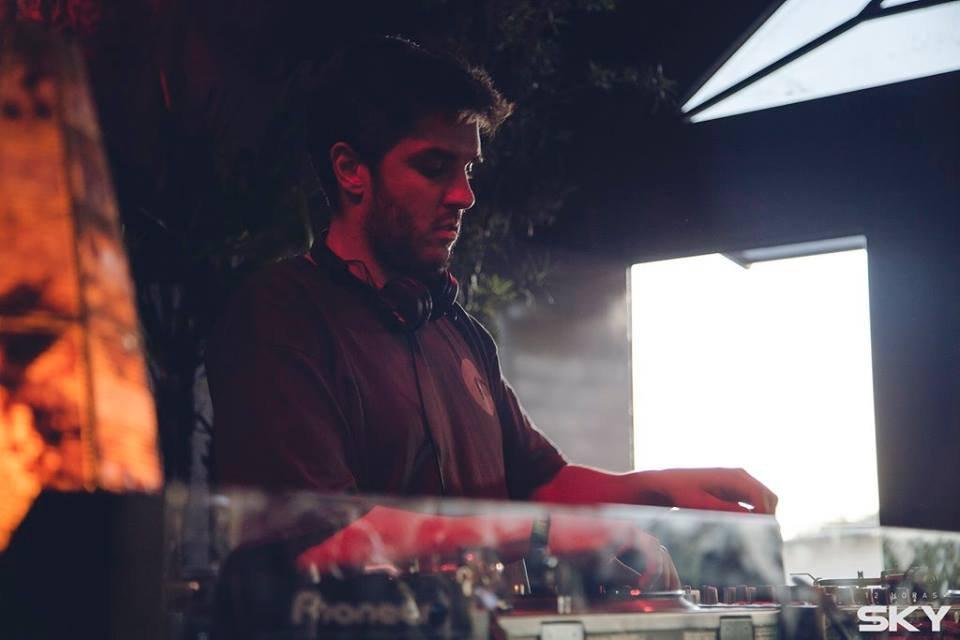
The Uruguayan scene is now known all over the world, with DJs such as Omar and Z@P gaining significant recognition. Do you feel a sense of pride to see these younger DJs blossom from your teachings?
I think this has been a really natural, organic process. I’m one of the oldest on the scene, as I started DJing in the early 2000s. I never considered leaving the country, because I’m too close to my family and the community. Since that was never a part of my plan, I watched almost all of my friends and colleagues leave. Over time I realised and accepted the fact that there are some things that will never change. Uruguay is a small country, with a considerable brain drain across every field and industry and electronic music is no exception.
It’s likely that a young DJ or producer would want to move to Europe after going once or twice and realising how much cheaper and easier it is to buy records, have them delivered, get gigs, go to parties, etc. So it’s to be expected that only a few of us would remain in the country to show the others what this path is all about. I’m a DJ that loves what he does very much.
I like to tell the younger ones stories, and I love showing them both old and new music. I do this from my heart. Music is one of the most important things in life for me and all I want to do is share it and pass that feeling on to other people. I’m really proud of the entire Uruguayan scene and of what everyone has achieved through lots of effort and hard work over these past couple of years. I’m happy to be a part of that.
Is there anything European DJs and club culture can take from Uruguay?
I think we all have interesting things to learn from different parts of the world. A lot of times it’s just little things that are different, but that doesn’t mean things are better or worse, it’s just a different language. I see a big difference here in the infrastructure that parties feature, especially small or medium-sized events. Here in Europe you sometimes play for 150 or 200 people on a Void or Funktion One sound system, which is unheard of in Uruguay. You might get a system like that for a huge event, but not a small party.
Also, I don’t encounter Technics M5G much here and that’s what we’re used to playing on in Uruguay, pretty much exclusively. These are technical details, but sometimes they can affect the outcome of a night. Life is a constant lesson, and it’s always great to travel and see how people do it in other places.

How did you first become involved with Phonotheque?
The technical aspects I just mentioned is how Phonotheque came to be, as a result of our desire to have a place of our own and Christian’s trips to Europe. In 2013 we were finally ready.
We couldn’t wait any longer and the conditions were all set: We had a space, our friend and founding partner Seba had the sound system and, most importantly, we realised there was a gap in the nightlife offering in Montevideo. It had been a few years since the city’s main underground club had closed and we wanted to gather all these people that were attending sporadic parties into one single space.
Of course, there are still other quality events in the city and the region, and we all know each other. Phonotheque opens on Saturdays and the other events are usually held on Fridays, so as not to affect the attendance too much. But things have definitely changed over the past six years—these days there are more projects, more artists and a greater understanding and acceptance of electronic music. It’s more respected than ever.
Perhaps the most well-known Uruguayan DJ is your good friend Nicolas Lutz, how did that friendship begin?
Nico and I met on the dance floor listening to Bruno, back before either of us was a DJ. In the beginning we were just party acquaintances. Then he moved to Europe and we stayed in touch and eventually became really good friends. We always shared a taste for underground music and culture and made a point of getting together every time he flew back home, which we still do to this day. We play together every chance we get, and now that I’m coming to Europe more, the odds of hearing us play together are getting better.
Do you think the club world is perhaps a bit too European centric? For example, Phonotheque was hosting amazing events and fantastic DJs for many years before most people knew about it. This could be happening anywhere in the world! Do we have a responsibility to push forward and find these smaller scenes?
Look, I think there are no scenes “in development”. They’re already developed, you guys just haven’t noticed yet! Ha!
We’re all in our own world and focused on making things the best they can be, to give our audiences the best experience possible. So we try to give it our all every single weekend. I think this is a great reason to get out and see other places, so that we can realise that what we have at home is of a really high quality and that other places are good also, but have nothing on our scene back home.
In Phonotheque, we try to make everything work smoothly, the way we, as DJs, like it to be. I think that’s why this place has had a global response. Every time an international artist visits us, they go back home saying there’s an incredible club in a tiny little country of 3 million people way at the bottom of South America, a place that’s probably one of the best clubs in the world. That makes me think that this is probably going on somewhere else in the world.
One advantage your compatriot Kino mentioned to RA in 2018 is that in cities such as London and Berlin, a lot of people are following trends as it’s easy to know what everyone is playing. Do you think you are better for not being hyper-aware of trends?
I think it’s important to be up to date but also to keep an open mind. You should have a clear enough vision to know where things are headed but also be very certain of where we want to take them ourselves. As a DJ, I’ve always preferred going against the grain and not paying too much attention to trends. I play a pretty wide variety of music within my sets, I think it’s something that characterises me and it’s something that I always preach. So it would be impossible for me to follow these trends, as I’d only be able to play one or two kinds of music and I’m into taking more risks!
A linear set with no surprises is boring to me as what I want is for the crowd to connect with what I’m proposing, for all of us to have a good time. I make a point of looking at the dance floor a lot, trying to connect with every single person that’s there. Of course, the trends are always there, I’ve even heard about the “Uruguayan sound”, and since lots of European DJs are playing it, then I guess that’s also a trend perhaps. But it’s not just music, there are trends for headphone brands, record bags, etc. I still prefer to stay away from all the noise.
In Europe, there’s a culture of guarding ‘track IDs’, as in not letting other people, aside from maybe close friends, know what you’re playing. Is music like this in Uruguay or do you share music with anyone who asks?
With that being said, every DJ has their own formula and the same track can be played a million different ways. I don’t really worry too much about the track ID thing. I see there’s a sort of obsession here with that…I once saw a guy cut through a dance floor with a pen and paper to write down the name of the track. Then he left! He didn’t even dance to it! I think the best thing is for everyone to pave their own way and not worry too much about the tracks anyone else is playing.
A documentary Michel Franco Paris on electronic music culture in Uruguay.
What makes a great party for Mr. Koolt? What are the key ingredients and what keeps you motivated to keep playing these parties?
Like the Inner City anthem said 30 years ago, “We don’t really need a crowd to have a party”. I still believe this to be true. With just music and people who are connected to each other, you can create a beautiful moment. There has to be a bit of positive energy and the will to dance as well—the most primal of things. Music and dance. That’s what I’ve dedicated my entire life to. What moves and inspires me.
Going out to party today still makes me feel the same way it did when I first went to a club, and I still get nervous before every gig. That’s my motivation. I like it all as much as I did the very first day. Music is in my blood and I try to honour it every day of my life. I feel the deepest gratitude to my parents and my siblings for teaching me to love music. I just want to show people how much it means to me.
What’s next for DJ Koolt?
It’s what I always say—I want to play right up until the very last day of my life. And I’m doing everything I can so it’s like that. Taking my sound to as many places as I can, meeting new people on the dance floor, looking them in the eye when I play and discovering where we can go together. If I can create just a moment of happiness and magic, I consider myself the luckiest guy in the world. I am infinitely thankful for the music.
More info on DJ Koolt
Facebook | Resident Advisor
More info on Phonotheque and Phonotheque Recordings
Facebook | SoundCloud | Resident Advisor
versión española
En los últimos dos años, se ha definido un estilo musical único e inspirador proveniente de una escena previamente desconocida – Uruguay. Productores como Z@p y Omar están en camino a convertirse en estrellas en la escena, pero Uruguay ha sido una cuna para el talento musical desde hace mas tiempo de lo que parece.
Después de haber realizado una gira europea tocando en lugares como Closer, Club der Visionaere y presentarse tres veces en el Reino Unido, hablamos con Dj Koolt. Co-fundador del actualmente famoso club Phonotheque, un increíble DJ y padrino del underground uruguayo.
Hola Edu, muchas gracias por hablarnos aqui en Trommel. Como va todo?
Hola! Gracias a ustedes por el espacio.
Me siento súper feliz, estoy por terminar el tour por estas tierras y todo está siendo fantástico, las fiestas, la gente y los lugares increíbles.
Hiciste un tour por Europa el año pasado, como te ha ido esta vez? Algo que hayas notado sobre el publico europeo?
De los tres tours de los últimos años este ha sido el más largo, el más completo y el más cansador, pero también veo que la respuesta del público es mucho mejor que en los anteriores, supongo que será porque ahora me conocen más por aquí y conocen más también de que va nuestro sonido y nuestra forma de hacer las cosas, últimamente varios de mis amigos uruguayos han estado tocando por aquí y por allá, o de visita o porque se vinieron a vivir a Europa y eso naturalmente está afectando en cómo la gente responde en las pistas, creo que si antes iban a escucharnos y salían un poco sorprendidos, ahora van a escucharnos sabiendo cuál es nuestra propuesta y eso también genera más movida, más gente escuchándonos y gigs mas importantes para todos.
Has estado buscando y comprando muchos discos en tu visita por Europa?
Por supuesto, he estado comprando y consiguiendo muchos discos, siempre que vengo aprovecho a hacerlo, llego a Madrid y ahí mismo empiezo la búsqueda, después trato de hacerme tiempo en cada ciudad para ir a las disquerías y también contactar con gente que venda de manera particular ya sea en su propia casa o donde haya que ir, siempre fui así, reviso todo, las joyas están donde menos se imagine, de todas formas te cuento que en este viaje donde conseguí más discos fue en Barcelona a diferencia de otros años que compré más en Berlín, a eso sumado los promos, dubplates y regalos, me voy con un par de maletas extras al aeropuerto.

Comencemos al principio de tu carrera. Donde inicio tu interés por la música electrónica? He escuchado que Bruno Gervais ha sido mencionado bastante…
Lo qué pasó fue que yo conocí la música electrónica de niño, muchos años antes de empezar a tocar, simplemente cuestiones familiares me llevaron a conocer otros tipos de sonidos bastante distintos a los que se escuchaban en Uruguay a finales de los 70 o principio de los 80, yo nací en el 73 y empecé a tocar en el 99, tenía 26 años y mucho mucho tiempo saliendo de fiesta, a Bruno lo conocí a principios de los 90 y pienso que gran parte de lo que hago es influencia directa de escuchar y bailar por horas la magia musical que él proponía, pero Uruguay tiene mucha cultura nocturna y de clubs desde muchos años antes de Bruno, el uruguayo es muy salidor muy fiestero, está en la idiosincrasia de nuestro pueblo, es algo que nos caracteriza y los DJs uruguayos siempre estuvieron muy actualizados y conectados con lo que pasaba en Europa o Estados Unidos, jamás estuvimos ajenos a los cambios artísticos y culturales a nivel global incluso antes de internet.
Tu educación musical previa al internet estaba exclusivamente enfocada a lo que estaba ocurriendo en Uruguay? O estabas al tanto de tendencias globales en cuanto a la música. Por ejemplo la escena minimal de Frankfurt a principios del 2000
Siempre traté de estar al tanto de todo lo que iba pasando musicalmente en el mundo, primero por curiosidad, por querer saber más de que se trataba lo que iba a bailar los fines de semana, me pasaba todo el día escuchando las estaciones de radio que pasaban música electrónica e iba a mirar discos a varias disquerías que había en Montevideo antes del advenimiento del cd y la crisis del vinilo, después empecé a tocar y la búsqueda se hizo más rigurosa, antes de descubrir Juno y empezar a comprar por ahí, me iba a Buenos Aires que todavía tenía 5 disquerías especializadas y me pasaba todo un día comprando discos o le compraba a un gran amigo que importaba de USA de las grandes distribuidoras tipo Watts Music y otras de esa época o sino le compraba a DJs de montevideo con más edad que yo, que ya no querían sus discos de house y techno underground porque se iban a pasar al cd, siempre traté de saber que estaba pasando por estos lados porque en Uruguay no había tantos productores como ahora, entonces dependíamos exclusivamente de la música foránea, algo que hoy en día ha cambiado mucho, si yo quiero, hoy puedo hacer un set de temas 100 por ciento de artistas uruguayos con vinilos editados masterizados y fabricados en Europa o cortarme los tracks en dubplates hechos acá o en Montevideo.
Como ha cambiado el internet tu estilo de digging? Se que Phonotheque son famosos por tener que comprar vinilos en grandes cantidades para igualar los costos de envio
En Uruguay siempre fue más fácil la entrada de discos que en el resto de Sudamérica, los discos y los libros pagan menos impuestos y eso ayudó mucho a que los DJs uruguayos nunca perdieran el respeto y el gusto por tocar vinilos, más allá de que los costos son más caros por ser importados, mientras en todo el mundo se puso de moda todo tipo de formato digital, desde el cd y controladores al pendrive, muchos DJs uruguayos siguieron tocando vinilos todo el tiempo, viajando o comprando por internet.
Sentías una responsabilidad de ser el mentor de algunos DJs uruguayos mas jóvenes, así después partieran para Europa como algunos lo han hecho?
Generación tras generación van creciendo y llega un momento que deciden irse del país, yo los he visto a todos, pero siempre aparecen jóvenes talentos con ganas de hacer las cosas bien y de seguir cosechando lo que los más grandes cultivaron, la cultura original del DJ tocando vinilos, de eso se trata y a eso apuntamos, nunca lo dejamos de hacer y hoy en día con la vuelta del vinilo a nivel masivo nosotros lo vemos como algo de lo más normal y simple, es lo que hacemos hace años, buscar conseguir y tocar vinilos.
En Uruguay hay dos disquerías especializadas, una en Maldonado que se llama Lado B de mi gran amigo Jorge Delgado y en Montevideo esta Alma bajo la curaduría de otro gran amigo como lo es Fede Lijtmaer, son dos proyectos nuevos muy serios en los cuales se puede conseguir tanto música nueva como de segunda mano.

La escena Uruguaya es reconocida en todo el planeta, con artistas como Omar y Z@P teniendo bastante reconocimiento. Sientes orgullo al ver a estos jóvenes DJs crecer por tus enseñanzas
Creo que las cosas se fueron dando naturalmente, yo soy uno de los más veteranos de los que empezaron a tocar en los años 2000, jamás pensé en irme del país, soy muy apegado a mi familia y a mi país, nunca estuvo en mis planes irme y eso me llevó a ver partir a casi todos mis amigos y colegas, con el tiempo fui entendiendo y aceptando qué hay cosas que no van a cambiar nunca, Uruguay es el clásico país chico exportador de talentos y eso se da en muchos niveles y disciplinas y la música electrónica no fue ajena a eso, es muy probable que un joven
DJ o Productor después de haber ido de paseo por Europa se quiera venir a vivir aquí o al menos sea una de sus grandes metas, acá el acceso a los discos es mucho más fácil, son más baratos, hay muchas disquerías y los costos de envío por correo son bastante menores que en Sudamérica, también las oportunidades para conseguir gigs son más amplias que allá, aquí hay más fiestas y más clubs, entonces es normal que algunos pocos se hayan quedado en el país para mostrarle a los más jóvenes este camino.
Soy un DJ que ama demasiado lo que hace, me gusta contarle a los más chicos anécdotas y me gusta mostrarles música vieja y nueva, lo hago de corazón, para mi la música es de las cosas más importantes de mi vida y solo quiero compartir y contagiar ese sentimiento.
Me siento muy orgulloso de toda la escena Uruguaya en general, de lo que se ha logrado con mucho esfuerzo y trabajo a lo largo de estos años y me siento súper feliz de ser parte de esto.
Hay algo en particular que los DJs y la cultura de club en Europa puedan aprender de Uruguay?
A mi me parece que todos tenemos cosas interesantes que aprender de todas partes del mundo, muchas veces los códigos son distintos y no por eso son mejores o peores, solo son diferentes, acá cambia mucho el tema de la infraestructura que es usada para hacer una fiesta mediana o chica, acá a veces tocas para 150 o 200 personas con sonido Void o Funktion One y eso en Uruguay no se da, a nivel masivo si, pero en fiestas chicas no, sin embargo acá no hay Technics m5g en casi ningún lado y nosotros estamos acostumbrados a tocar con esas, son detalles técnicos nada más pero a veces afectan bastante el desarrollo de una noche.

Como inicio tu participación en Phonotheque?
La vida es un aprendizaje constante y siempre es bueno viajar para ver cómo se hacen las cosas en otros lugares, así nació Phonotheque, fue el resultado en conjunto de las ganas de tener un lugar propio y los viajes de Christian a Europa, para el 2013 ya estábamos listos, no podíamos esperar más, se dieron las condiciones, teníamos el lugar, Seba nuestro amigo socio fundador tenía el sound system y lo más importante es que vimos que era lo que faltaba en la ciudad, ya que hacía unos cuantos años que Montevideo no tenía un club y necesitábamos juntar a todo el público que iba a las fiestas en un solo lugar.
Claro qué hay más fiestas de calidad en la ciudad y todos somos conocidos de todos, Phonotheque abre los sábados y generalmente las otras fiestas son los viernes así no se afecta tanto la concurrencia, de todas maneras las cosas han cambiado bastante en estos 6 años, hoy en día hay más propuestas, más artistas y más gente en general abrazó la música electrónica, siento que ahora la respetan más que antes.
Probablemente el DJ uruguayo mas reconocido es tu buen amigo Nicolas Lutz, como inicio esta amistad?
Con Nico nos conocimos en las pistas escuchando a Bruno cuando todavía ninguno de los dos tocaba, al principio solo nos veíamos en fiestas y después el se vino a vivir a Europa, seguimos en contacto y nos fuimos haciendo súper amigos a la distancia, siempre compartimos el gusto por la música underground y siempre nos juntábamos cuando él volvía a visitar Uruguay, cosa que hacemos hasta el día de hoy, cada vez que podemos tocamos juntos y ahora que yo vengo más seguido a Europa las posibilidades de escucharnos juntos son mayores.
Piensas que el mundo de club es quizás muy centrado en Europa? Por ejemplo, Phonotheque estaba organizando eventos con artistas geniales durante muchos años antes que la mayoría de la gente lo supiera. Esto mismo podría estar ocurriendo en todo el mundo! Tenemos una responsabilidad de avanzar y encontrar estas escenas en desarrollo?
Mira yo creo que las escenas no están en desarrollo, creo que ya están desarrolladas solo que ustedes todavía no se dieron cuenta jajaja!
Cada uno vive en su mundo y está centrado y focalizado para que las cosas en su mundo sean lo mejor posible, para brindarle al público la mejor experiencia que puedan tener y en eso uno trata de dar lo máximo en cada fin de semana, por eso hay que ir a conocer otros lugares, para darnos cuenta de que lo que tenemos en casa es muy bueno y no tiene nada que envidiarle a ningún club en ninguna parte del mundo, en Phonotheque tratamos de que todo funcione a la perfección y como a nosotros que somos DJ nos gusta y por eso el lugar tiene repercusión a nivel global, porque cada vez que viene un artista internacional vuelve a su tierra diciendo qué hay un lugar increíble, en un paisito chiquito de 3 millones de habitantes, en el fondo de Sudamérica que probablemente sea uno de los mejores clubs del mundo, eso me hace pensar que esto seguramente está pasando en otras partes del planeta.
Una ventaja que tu compatriota Kino le comento a RA en el 2018, fue que en ciudades como Londres o Berlin, mucha gente sigue tendencias ya que es facil saber lo que todo el mundo esta tocando. Crees que es mejor no estar muy enfocado en estas tendencias?
Creo qué hay que estar siempre muy atentos y con la mente muy abierta, teniendo la suficiente visión como para darse cuenta para donde están yendo las cosas en el mundo y evaluar para donde las queremos llevar nosotros, yo como DJ siempre preferí estar un poco contra la corriente y no prestando tanta atención a las tendencias mundiales, toco una variedad bastante grande de estilos dentro de mis sets, es lo que me caracteriza y es lo que predico, entonces para mi es totalmente imposible seguir las tendencias porque ahí tendría que tocar solo uno o dos estilos o tipos de sonido y me gusta hacer algo mucho más arriesgado, para mi un set muy lineal es aburrido, es un set que no tiene sorpresas y para mi lo más importante es que que el público conecte con mi propuesta, así todos pasamos un rato divertido, soy un DJ que mira mucho la pista y me preocupo por cada persona que está en ella, es claro que las tendencias están ahí, es más, he escuchado varías veces por aquí sobre el “Uruguayan sound” y como muchos DJs europeos lo están tocando, entonces eso también es una tendencia.
Las tendencias se ven en todo, no solo en la música sino también en que marca de auriculares o que marca de bag para discos usas, yo sigo prefiriendo estar lejos de todo eso.
En Europa hay una cultura de cuidar los ‘track IDs’, no dejando que otra gente, excepto tu circulo cercano, sepa lo que estas tocando. Pasa lo mismo en Uruguay o compartes música con cualquiera que te lo pregunta.
De todas maneras cada DJ tiene su fórmula para hacer las cosas y los mismos tracks pueden ser tocados de maneras infinitas, la verdad que no me preocupo mucho del asunto de los tracks id, veo que aquí hay una especie de obsesión por eso, una vez vi a un chico surcar toda una pista con una libreta y un lápiz para anotar el nombre de un disco, lo hizo y se fue, ni siquiera se quedó bailando el track jajaja, pienso que lo mejor sería que cada uno busque su música para hacer su camino y no se preocupe tanto por los nombres de los tracks que tocan los demás.
A documentary Michel Franco Paris on electronic music culture in Uruguay.
Que hace que una fiesta sea increible para el Sr. Koolt? Cuales son los ingredientes principales? Que te mantiene motivado?
Como lo decía hace 30 años el himno de Inner City “We don’t really need a crowd to have a party” para mi sigue siendo así, solo con música y gente conectada entre si, se puede generar el mejor momento, no pueden faltar en la receta muchas ganas de bailar y energía positiva, lo más ancestral del mundo, música y baile, es a lo que le vengo dedicando toda mi vida, es lo que me apasiona y me conmueve, salir de fiesta hoy en día me causa la misma sensación que la primera vez que fui a una discoteca, y sigo sintiendo nervios antes de cada toque, eso es lo que me motiva, me gusta todo esto exactamente como el primer día, la música está en mi sangre y le hago honor todos los días de mi vida, le agradezco profundamente a mis padres y a mis hermanos por haberme enseñado el amor por la música y solo quiero mostrarle a la gente lo que significa para mi.
Como es el future de DJ Koolt?
Siempre lo digo, quiero tocar hasta el último día de mi vida y hago todo lo posible para que eso se de, llevar mi sonido a la mayor cantidad de lugares posibles y seguir conociendo gente en las pistas, seguir mirando al público a los ojos y descubrir juntos para donde ir, si tan solo con eso puedo generarles un momento de felicidad y magia me considero la persona más afortunada del mundo.
Le doy gracias infinitas a la música.
More info on DJ Koolt
Facebook | Resident Advisor
More info on Phonotheque and Phonotheque Recordings
Facebook | SoundCloud | Resident Advisor



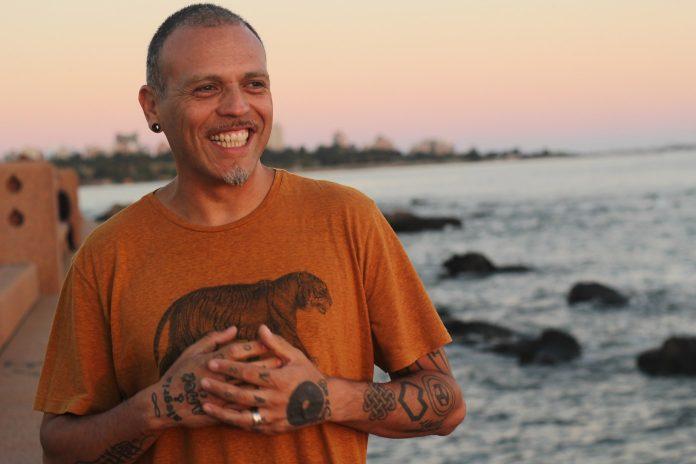
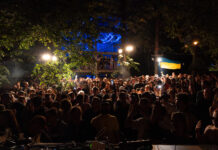
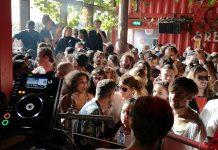

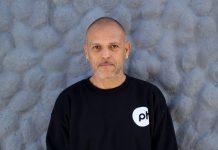
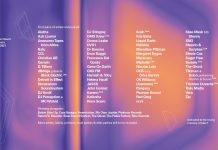

![Premiere: A2 – mrelss – Season of Reason [AMAM044]](https://trommelmusic.com/wp-content/uploads/2026/02/label_side_A-Alessio-Mereu-324x235.jpg)
![Premiere: 2 – Santon – Only a Test (Alain de Saracho Remix) [SDR012]](https://trommelmusic.com/wp-content/uploads/2026/02/Santon-Only-a-Test-EP-Artwork-Alain-de-Saracho-100x70.png)
![Free Download: Zombies in Miami – What Ya Doing [TFD128]](https://trommelmusic.com/wp-content/uploads/2026/02/photo_2026-02-12-10.38.24-e1770892750337-100x70.jpeg)
![Premiere: 1 – DAT (Italy) – Not My Plan [SENS001]](https://trommelmusic.com/wp-content/uploads/2026/02/IMG_9750-Sensazione-Stupenda-100x70.png)
![Premiere: B1 – Kolhida – Break And Escape (Cezar Lazãr Remix) [TTM003]](https://trommelmusic.com/wp-content/uploads/2026/02/IMG_2883-Aleksandr-Gocheleyshvili-100x70.png)
![Premiere: A1 – JJ Fortune – Design [LNS10]](https://trommelmusic.com/wp-content/uploads/2026/02/1188556-100x70.jpg)
![Premiere: A1 – Alexander Skancke – Saga Of Subvision [QRK015]](https://trommelmusic.com/wp-content/uploads/2026/02/photo_2026-02-03_17-31-24-100x70.jpg)

![Premiere: A1 – Light Blue File – JUNIOR [RCR002]](https://trommelmusic.com/wp-content/uploads/2026/02/RCR.002.FRONT_.LABEL-Will-Gilliland-100x70.png)
![Premiere: A2 – Lisovskyi – Just One Good Whiff [FIB004]](https://trommelmusic.com/wp-content/uploads/2026/02/B-100x70.png)